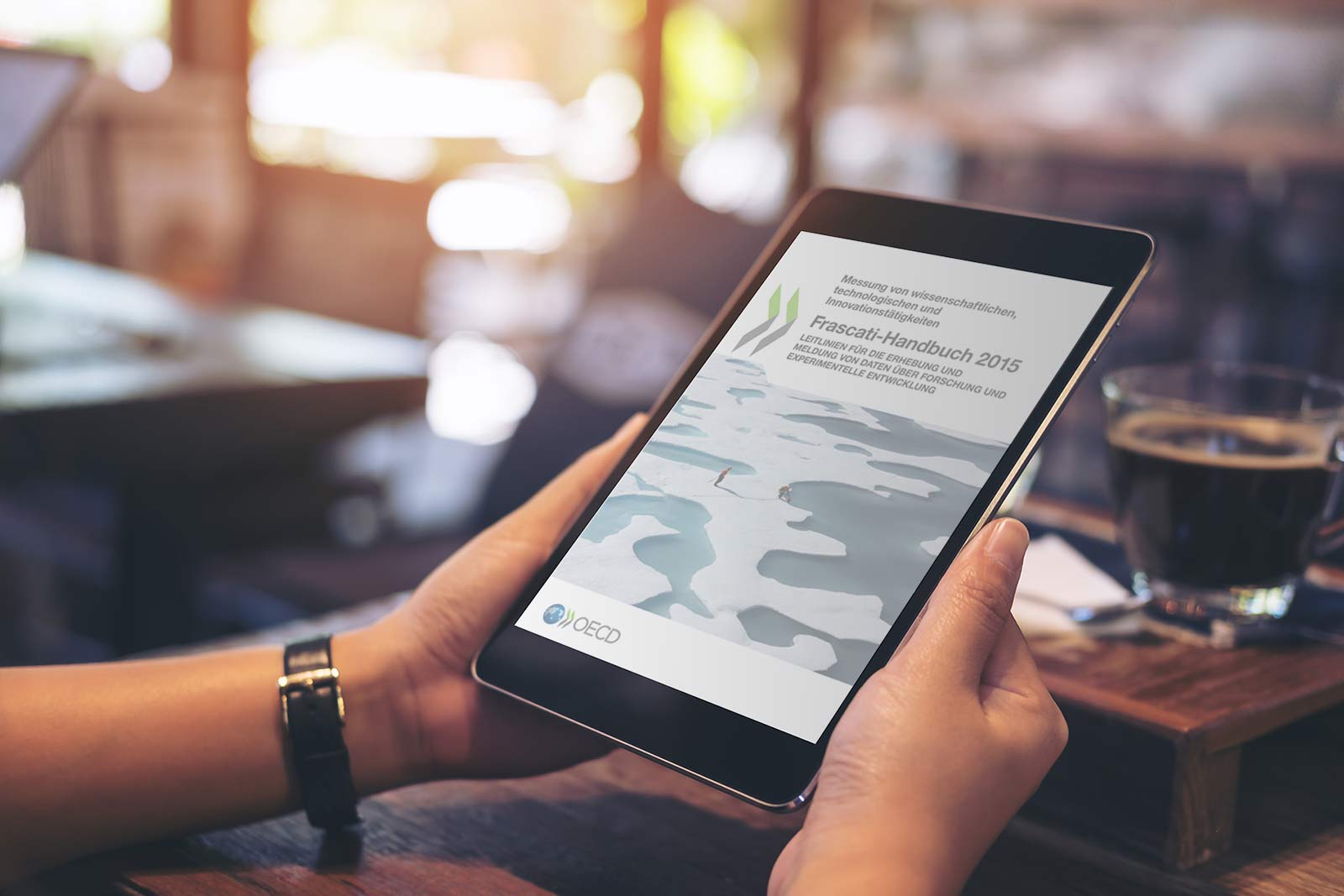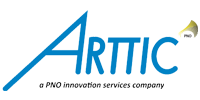Eligibility of the research project (FZulG)
Eligibility of the research project
The substantive examination of the eligibility of a research project is carried out by the certifying body. The Certification Ordinance FZulG-BV states: “the entitlement to R&D tax credit depends on the determination of whether a research and development project within the meaning of Section 2 (1) to (3) FZulG exists. The examination of the requirements of Section 2(1) to (3) FZulG is the responsibility of the certifying bodies, which undertake the substantive examination and issue a certificate to the applicant stating that a research and development project exists in accordance with Section 2(1) to (3) FZulG.” (FZulg BV)

Frascati Manual 2015
The OECD Frascati Manual was first developed in 1963 to define data on research activities for EU programs in a methodologically comparable way for statistical purposes. Since then, new editions have appeared regularly.
The certifying bodies for research grants use the Frascati guidelines to decide whether a research project is eligible for funding.
What is “eligible”?
Defining which projects fit under the R&D tax incentive is critical. While some innovation development activities clearly fall under the Frascati definitions, others are difficult to delineate. Below are some examples of this spectrum of research and development activities (only for illustration, not complete and should be checked in individual cases!)
Not eligible
- Marketing, market research
- Continuos education, training
- Standard tests and trials
- Feasibility analysis
- Quality controls
- Production start-up
- External expertise / patent application
- After-sales service and troubleshooting
- Activities not included in the application
Possibly eligible
- Quality control directly related to the project
- Technology-related working time for supervising scientific staff, e.g. postdocs
- Trial production, if production results in serial testing/design and engineering work
- Brainstorming sessions on technical problem solving during the project
Eligible
- Clinical trials
- Prototype development
- Test data analysis
- New methods and processes
- Contract research
- Experimental product development
- Validations
- Tool setup with feedback R&D
FAQ
How long does this grant program run?
The R&D tax credit is a tax law, not a grant program. Therefore, this tax credit model has no expiration date. There is even a legal entitlement to the tax-based research funding as soon as eligibility is proven.
Which projects are eligible?
All research and development projects are eligible for funding from 01.01.2020 if they meet formal and content requirements. The rules are defined in the application forms and in the Frascati Manual, the OECD manual defining research and development.
How much does it cost? How high is my risk?
We can offer you the above mentioned services in a risk-minimized way, by means of a provision commission, a premium ONLY in case of a successful certification and an SUCCESSFUL remuneration based on the tax assessment from the tax office about your research allowance!
That is how sure we are that our applications will be evaluated positively.
Which companies are eligible?
Everyone in Germany – there is no distinction between SMEs, start-ups or large companies! The R&D tax credit is suitable for organizations of any size. All taxpayers as defined by the Corporate Income Tax Act or the Income Tax Act are eligible to apply.
What costs are eligible?
First: Labor costs incl. Fringe benefit costs for employees working on research and development projects, in each case for the proportion of their working time that is attributable to eligible activities in the research project. Administrative costs or staff, on the other hand, are not eligible. Second, expenditures for contract research (60% eligible).
How to apply for the R&D tax credit?
STEP 1 – Research Grant Certificate Application:
The basis for the R&D tax credit is a certificate, which is applied for at the Certification Office Research Allowance BSFZ. Applications may be submitted at any time, before, during or after the R&D projects and no later than four years after the year in which the expenditure was made. ARTTIC Innovation checks your projects for eligibility and writes the applications for you!
STEP 2 – Research Tax Allowance Application:
The application must be submitted to the relevant tax office.
The tax credit will be applied either deducted at the next tax return from the assessed tax burden or paid out as a tax refund.
How much money can you get?
Maximum of €1,000,000 each year from 2020 per applicant, including all companies affiliated under the Companies Act. The tax subsidy is 25% of the eligible costs for R&D personnel and contract research.
Why apply with ARTTIC Innovation?
As Europe’s leading innovation consultancy, ARTTIC Innovation GmbH / PNO Group has more than 30 years of experience with R&D tax incentives and EU-funded R&D projects
Book a video call
How much time can your research and development team spend on the application? Can you tell if your project is eligible under Frascati rules? Do you know if you have identified all the expenses that fall under the research allowance?
We help you with the application according to § 5 of the Research Grant Act and optimize your chances.
Schedule an online meeting and:
- Let us explain the whole research allowance process to you
- Get to know the services of ARTTIC Innovation GmbH
- Get certainty about the eligibility of your projects
Click the button and schedule your video call appointment. You will receive a confirmation of your request.
Contact us
Do you want to save time? Want to know if you can get a tax credit and how much? Ask your question here - we'll answer right away!
ARTTIC/PNO Group's advice on the research allowance explicitly does not include assistance in tax matters. This is reserved for tax advisors and other professionals authorized in accordance with § 3 StBerG.
We offer our services around the FZulG in cooperation with Ebner Stolz, which is one of the top ten independent auditing and consulting firms in Germany.
Research Grants Act (FZulG)

